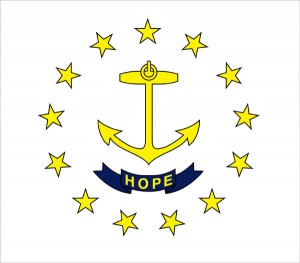Rhode Island’s Constitution mandates that decennially, next on Nov. 5, 2024, the people of Rhode Island can call a state constitutional convention via a popular referendum. It also mandates that prior to that referendum the state legislature must convene an independent constitutional commission to describe the type of constitutional changes that might warrant calling a convention.
In recent decades, the General Assembly has instead used this commission process to attack the convention process; for example, by highlighting a convention’s possible cost and risk rather than benefit.
On May 30, the Assembly belatedly introduced a resolution to implement the mandatory constitutional commission. But it doubled down on its past strategy of subverting the framers’ intent for the commission process. Rather than creating a genuinely independent process, it created one that is tightly under its control; is not required to have any public hearings (let alone televise them or make them genuine deliberative forums); and ensures the commission lacks adequate time to do its job.
The legislature has always been the convention process’s natural enemy because, like the popular initiative (which Rhode Island lacks), the process is designed to break the legislature’s monopoly power over the proposal of constitutional amendments. It allows a convention to propose a Pandora’s Box of reforms like legislative transparency, legislative term limits, a line-item veto for the governor, and voting reforms to create a more competitive electoral system.
Other natural enemies of the convention process are the apex special interest groups in Rhode Island that, by definition, excel at influencing the legislature. During the last few decennial convention election cycles, these groups demonstrated a willingness to spend unlimited amounts, sometimes illegally, to ensure that the convention referendum lost. For them, a convention opens a Pandora’s Box that could cause them to lose unpopular advantages.
During most of the 20th century, Rhode Island legislatures loved conventions because the courts allowed them to convene limited conventions, which meant they could limit a convention’s agenda to issues favorable to themselves. This changed in 1973 when one of those conventions broke those chains and proposed a periodic convention referendum for popular ratification − which the courts then upheld. Ever since, the legislature and its special interest allies have been implacable convention enemies.
Their track record of success in disparaging the convention process has created a negative feedback loop, as every time one of these referendums fails, it becomes harder to build support for the next one. On the one hand, polls show that the public has remarkably little trust in their government institutions and thinks the system should be fixed. On the other hand, this translates into cynicism, not productive efforts at reforms, because of the public’s learned helplessness.
The last era when Rhode Island’s legislature so implacably opposed the convention process was in the early 1840s, which led to its famous Dorr Rebellion, arguably the closest thing to an intrastate civil war in American history. Rhode Island no longer needs an armed rebellion to reform its constitution when confronting an obstreperous legislature because it now has the periodic convention referendum. But thanks to the public’s increasing ignorance of this institution’s history and democratic purpose, combined with its learned helplessness, what the public now predominantly knows about this institution is only what its enemies have told them.
If, as in 2014, the commission releases a biased report, which is then used as the basis for the Secretary of State’s voter information handbook heaping scorn on this institution and mailed to all Rhode Island registered voters at taxpayers’ expense, the public should keep in mind that the Wizard of Oz orchestrating this process, despite its PR to the contrary, was the General Assembly.
J.H. Snider is the editor of The Rhode Island State Constitutional Convention Clearinghouse.
Source: Snider, J.H., Legislature Subverting State’s ConCon Process, Providence Journal, June 23, 2024. A copy of the article as published in the print edition can be found here.

